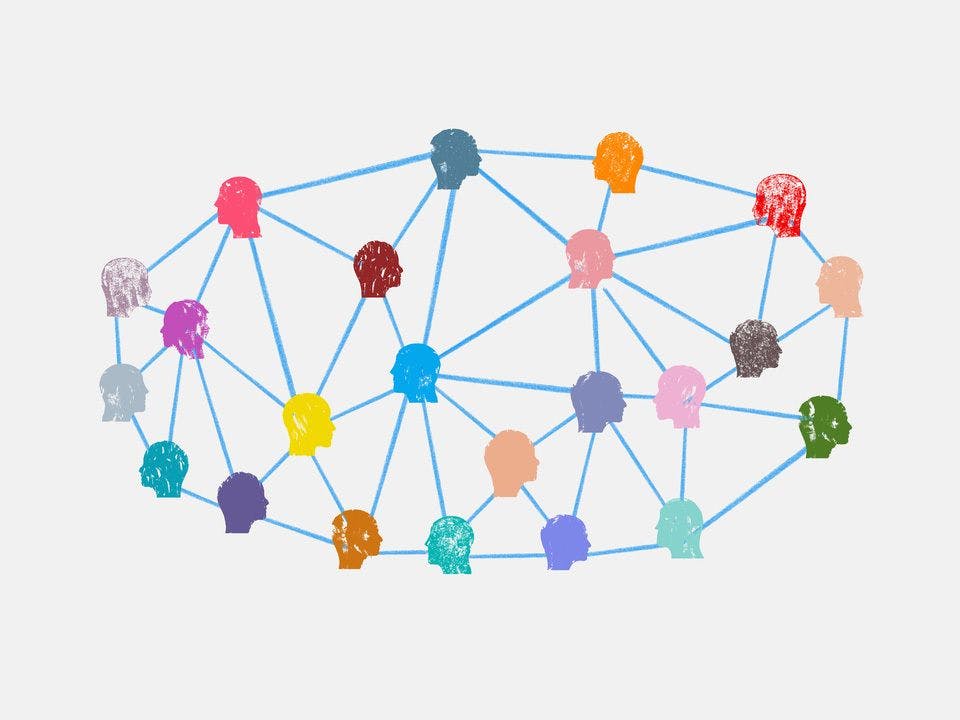
How employee advocacy can attract and retain the best talent
Why are your employees your best brand advocates?
Businesses recognise the power of these networks, and increasingly have sought to harness them through employee advocacy programmes. When done successfully – and authentically – they can transform employees into true brand ambassadors, sharing their company's news, stories, and achievements within their circles. This not only extends the company's reach and credibility but also adds a genuine human element to its presence.
What is employee advocacy?
At its core, employee advocacy is about encouraging, enabling and equipping employees to positively engage external audiences. This can take various forms, from social media shares and word-of-mouth endorsements to active participation in community events.
When employees speak to and share their experiences, they can become authentic and trusted sources about their company. It’s most commonly found in cultures where employees feel a sense of belonging, a loyalty to the work or purpose and a true connection that acts as a springboard for ambassadorship. According to LinkedIn, companies with active advocates are more likely to attract top talent and see a 20% boost in retention rates.
How can employee advocacy help with reputation management?
Employee advocacy boosts brand awareness and improves brand perceptions and choice among external audiences (both employees and customers) as well as enhancing engagement and capabilities internally too.
There’s a legitimacy and intimacy that comes from people sharing their stories of success, learning, growth, and joy, and these stories don’t tend to get lost in the employer brand space either.
A few examples of employee advocacy at work -
- —Awareness: Dell's employee advocacy program is a prime example of propelling awareness. They encouraged 10,000 employees to share branded content. This amplified Dell's online presence but most importantly it grew brand trust. 92% of consumers place their trust in anecdotes and personal recommendations over all other advertising forms, making it potently clear that a happy and in turn, heard-about culture, is a trusted source.
- —Attraction: Advocacy by employees also influences talent recruitment. Adobe's employee advocacy program, called Adobe Life, focuses on sharing employee-generated content that showcases the company culture. The program has helped increase brand awareness and engagement on social media. Alongside this, the program strengthened its employer brand, helping to attract more great talent, as well as creating a sense of pride amongst existing employees too.
- —Retention: Programs aimed at employee advocacy significantly enhance job satisfaction, engagement, and therefore retention. Salesforce's internal program turned employees into advocates called ‘Trailblazers’ – providing shareable content from brand announcements, to connecting colleagues across the globe, as well as distilling their company values. This instilled a sense of ownership and pride among its workforce, underlining the intrinsic value of involving employees. It has been found that companies with a strong employer brand see a 28% reduction in turnover and a 50% cost reduction per hire (LinkedIn). Employee advocacy demonstrates a positive work culture with engaged employees, which in turn helps retain talent.
How can employee advocacy improve a brand’s culture?
Employee advocacy does more than simply boosting your marketing strategy: it helps cultivate a culture of trust, pride, connection, and collaboration.
These examples show how companies investing in positive employee experiences and advocacy programs can help support brand visibility, engagement, and overall company performance. While the examples and metrics may change over time, the success stories underline the value of empowering employees to become brand ambassadors.
In today's network-driven world, where authenticity is everything, employee advocacy emerges as an invaluable tool for awareness, attraction, and retention. In a time where we are overwhelmed with information, and when audiences are ever more cynical about what businesses say about themselves, why not humanise the process and trust word of mouth? Six degrees of separation sorted.
If you'd like to learn more about engaging your people and fostering a culture that creates employee advocates, drop us a note at [email protected]